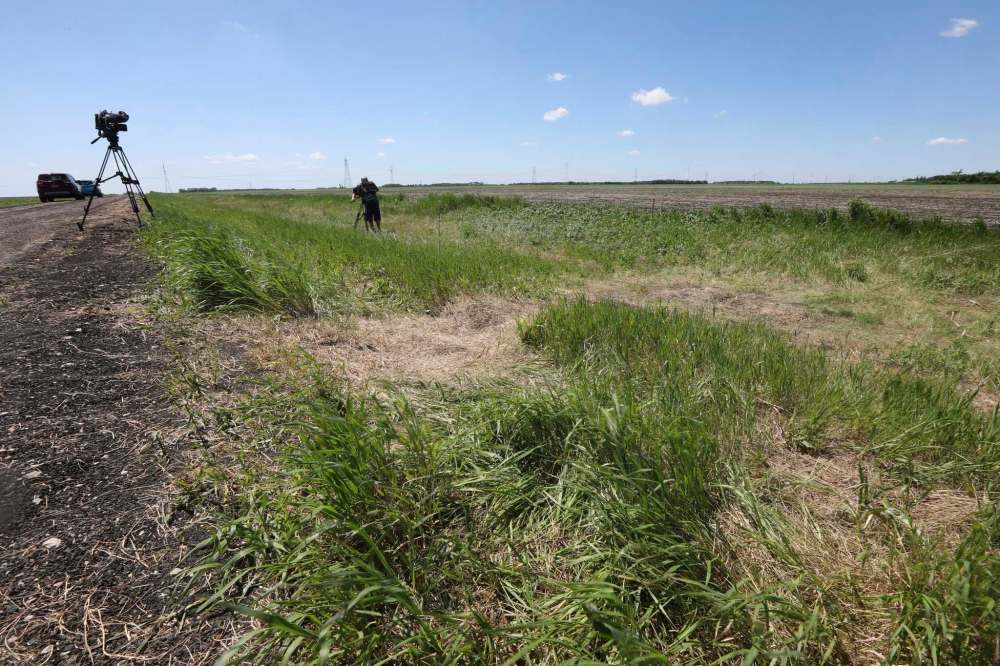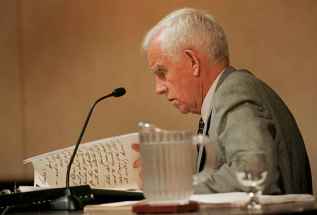Accused killer met Christine Wood on dating site, jury hears as trial opens
Read this article for free:
or
Already have an account? Log in here »
To continue reading, please subscribe:
Monthly Digital Subscription
$0 for the first 4 weeks*
- Enjoy unlimited reading on winnipegfreepress.com
- Read the E-Edition, our digital replica newspaper
- Access News Break, our award-winning app
- Play interactive puzzles
*No charge for 4 weeks then price increases to the regular rate of $19.00 plus GST every four weeks. Offer available to new and qualified returning subscribers only. Cancel any time.
Monthly Digital Subscription
$4.75/week*
- Enjoy unlimited reading on winnipegfreepress.com
- Read the E-Edition, our digital replica newspaper
- Access News Break, our award-winning app
- Play interactive puzzles
*Billed as $19 plus GST every four weeks. Cancel any time.
To continue reading, please subscribe:
Add Free Press access to your Brandon Sun subscription for only an additional
$1 for the first 4 weeks*
*Your next subscription payment will increase by $1.00 and you will be charged $16.99 plus GST for four weeks. After four weeks, your payment will increase to $23.99 plus GST every four weeks.
Read unlimited articles for free today:
or
Already have an account? Log in here »
Hey there, time traveller!
This article was published 30/04/2019 (2419 days ago), so information in it may no longer be current.
The man accused of killing 21-year-old Christine Wood in his home, wrapping her body in plastic, and burying her in a shallow grave outside city limits told Winnipeg police he didn’t know who she was nor what led to her disappearance.
Brett Overby, 32, has pleaded not guilty to second-degree murder in the August 2016 slaying of Wood, who was missing for 10 months until her body was found in the Rural Municipality of Springfield in June 2017. A jury of nine men and three women are tasked with hearing the evidence against Overby.
As the trial began Tuesday, Crown prosecutors said they expect to prove Wood met Overby through an online dating website, and was killed inside his Burrows Avenue house after sending her last messages while using his cellphone, over his wireless internet connection.

The jury heard Overby deny killing Wood in a video-recorded police interview from January 2017, which was played in court.
“No, I don’t even know who she is,” Overby said when missing-persons investigators asked him directly whether he killed Wood or had anything to do with her disappearance. He looked at photographs of the 21-year-old former University of Winnipeg student and told police he didn’t recognize her.
Investigators asked him about his use of the dating site Plenty of Fish, and Overby gave them his username. He said he’d only met two people through the site, and had never seen Wood nor heard her name.
At the time of the interview, he was a person of interest in Wood’s disappearance. It would be another six months until a farmer discovered her remains in a ditch near his field.
On Tuesday, Wood’s parents, Melinda and George, both testified about their only daughter’s last days.
They travelled from their home in Oxford House (Bunibonibee Cree Nation) to Winnipeg for Melinda’s mother’s medical appointments in August 2016, and Christine was staying in a hotel with them during their visit. She had previously lived in Winnipeg while she was a business administration student, and opted to return to the city July 30, telling her mother she was staying with a friend.
On the last day they saw her alive — Aug. 19, 2016 — the trio went shopping.
Wood had $200 to replace her broken cellphone, but she didn’t buy a new one, Melinda testified. Wood bought denim shorts and white flip-flops, which she was wearing, along with a green bandeau top and a lace overshirt when her parents last saw her.
They had pizza together in the hotel room while Wood was getting ready to go out for the evening, George testified. When he and his wife of 34 years went out to buy cigarettes, their daughter left.
Her mother’s text messages to her later went uncharacteristically unanswered, but Wood’s parents assumed she’d be back in the wee hours. She’d come home at 2:30 a.m. the day before. They never saw her again.
During her testimony, Melinda was questioned about Wood’s drug use and her habit of staying out late.
Melinda said she never saw her daughter use drugs, apart from once in junior high around the time a childhood friend died tragically. Melinda acknowledged she had seen people return to Oxford House from Winnipeg and appear to experience withdrawal symptoms, but she said she never noticed with her daughter, and they spent a lot of time together.
After Wood’s parents reported her missing Aug. 22, the Winnipeg Police Service missing-persons unit started an investigation that involved interviewing more than 100 people.

Det. Jean-Guy Roy testified he personally applied for 21 court orders — including search warrants, general warrants and production orders.
Police said Overby’s name wasn’t mentioned until Wood had already been missing for five months. In January 2017, thanks to a production order for telecommunications company MTS, police learned the internet-protocol address Wood had used when she accessed her Facebook account for the last time was in Overby’s home at 341 Burrows Ave.
Shortly before 1 a.m., on Aug. 20, 2016, Wood sent Facebook messages to two men looking to buy drugs, Roy testified.
Later, while talking to police, Overby admitted using cocaine and other drugs in the past, but he said he had never used cocaine with a girl.
As part of the Crown’s case, jurors are also expected to hear from Overby’s former common-law partner, police investigators and the farmer who discovered Wood’s body.
Crown prosecutor Chantal Boutin warned the jury some of the evidence will be difficult to see and hear.
“You will know the who, the when, the where, the what and the how. The one question that the evidence may not show you is the why,” Boutin said. “And I want to be upfront about that, because it’s human nature to want to know about, but our law does not require that to be determined.
“People do things for any number of reasons, often known only to them — even murder.”
katie.may@freepress.mb.ca
Twitter: @thatkatiemay

Katie May is a general-assignment reporter for the Free Press.
Our newsroom depends on a growing audience of readers to power our journalism. If you are not a paid reader, please consider becoming a subscriber.
Our newsroom depends on its audience of readers to power our journalism. Thank you for your support.
History
Updated on Tuesday, April 30, 2019 8:06 PM CDT: Fixes typo.
Updated on Wednesday, May 1, 2019 3:42 PM CDT: Clarifies the video-recorded police interview was from January 2017.
Updated on Wednesday, May 1, 2019 5:58 PM CDT: Corrects reference to timeframe; adds video.
















